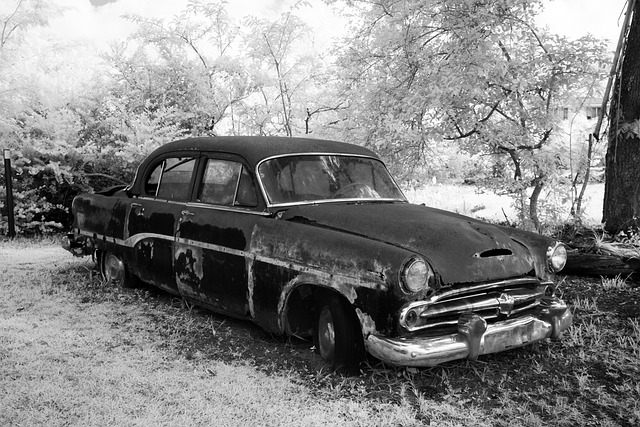In the digital age, robocalls have become a ubiquitous and often annoying part of daily life. North Carolinians may feel powerless against these automated calls, but they possess rights under the Telephone Consumer Protection Act (TCPA). This article guides residents through understanding robocalls, their legal protections, and options like suing for spam calls in NC. Learn how to identify and document unwanted calls, explore legal avenues with a spam call lawyer or law firm in North Carolina, and reclaim control over your phone lines.
Understanding Robocalls and the TCPA in North Carolina
In North Carolina, like across the nation, robocalls have become a ubiquitous nuisance. These automated calls, often promoting products, services, or political messages, can be frustrating and intrusive. However, they’re not always illegal. The Telephone Consumer Protection Act (TCPA) is a federal law designed to protect consumers from certain types of telemarketing practices, but it allows some robocalls, such as those from non-profit organizations or businesses with an established relationship with the recipient.
Nevertheless, if your rights under the TCPA have been violated—for instance, if you’ve received unwanted robocalls promoting goods or services, or if a company has called you using prerecorded messages without your consent—you might have grounds to take legal action. In North Carolina, a spam call law firm or lawyer specializing in TCPA cases can help you understand your rights and explore options for compensation or cease and desist letters. Don’t hesitate to consult with a legal professional if you suspect you’ve been harmed by robocalls; you may be able to sue for damages, including money for your trouble, under the TCPA.
Your Rights as a North Carolina Resident Against Robocalls
As a North Carolina resident, you have rights when it comes to unwanted robocalls. The Telephone Consumer Protection Act (TCPA) is a federal law designed to protect consumers from certain types of telephone solicitation and telemarketing practices. If you’ve received spam calls or robocalls, you may be able to take legal action.
In North Carolina, as in many other states, there are strict regulations regarding automated dialing systems and prerecorded messages. If a call is considered a violation of the TCPA, you could have grounds to sue for damages. A spam call law firm or lawyer specializing in TCPA cases can help you understand your rights and determine if you can take legal action against the culprits behind these annoying calls, potentially seeking compensation for harassment and invasion of privacy.
How to Identify and Document Spam Calls
Identifying and documenting spam calls is an essential step to protect your rights as a North Carolina resident. Start by noting the caller’s phone number, which can be done manually or through call-blocking apps that record incoming numbers. Check if the area code matches known spam sources or is associated with automated dialing systems. Pay attention to suspicious patterns like multiple calls from the same number within a short period.
Documenting these interactions is crucial for legal purposes. Save any voicemails or text messages received from suspected spam callers, as they can serve as evidence. Keep a log of each incident, including dates, times, and details about the caller’s message. If possible, record live conversations by pressing the ‘record’ button on your phone (ensure compliance with local laws regarding recording conversations). Engaging a reputable spam call law firm or spam call lawyers in North Carolina can help you navigate legal options, especially if you’re considering suing for robocalls under the TCPA (Telecommunications Consumer Protection Act).
Legal Options: Can You Sue for Robocalls in NC?
If you’ve been receiving unwanted robocalls in North Carolina, you may be wondering if you have any legal recourse. The good news is that there are options available to hold scammers accountable and protect your privacy. In North Carolina, as in many states, there are laws in place to combat spam calls, including the Telemarketing and Consumer Protection Act (TCPA). If a robocall violates these regulations, you may have the right to take legal action.
Consulting with a spam call law firm or lawyer specializing in TCPA cases in North Carolina is a smart first step. These professionals can help determine if the calls were indeed unauthorized and if they violate any specific laws. If your case has merit, they can guide you through the process of filing a lawsuit against the culprit, potentially seeking damages for each violation, which could result in significant compensation. Don’t hesitate to explore these legal options; protecting your rights is an essential step in curbing unwanted robocalls.
Choosing the Right Spam Call Lawyer or Law Firm in North Carolina
When considering legal action against robocallers, choosing the right spam call lawyer or law firm in North Carolina is crucial. Look for firms specializing in telecommunications law and having a proven track record in handling TCPA (Telecommunications Consumer Protection Act) cases. This expertise ensures they understand the intricacies of robocall regulations and can offer effective strategies to pursue compensation.
Reputable spam call law firms in North Carolina should provide transparent communication, clearly outline potential costs and benefits, and actively stay updated with legal changes related to robocalls. Additionally, consider lawyers who are not just attorneys but also advocates for consumer rights, dedicated to protecting individuals from unsolicited calls. If you’re contemplating whether to sue for robocalls in North Carolina, these qualifications and a strong case history suggest a competent legal partner in your fight against spam calls.






